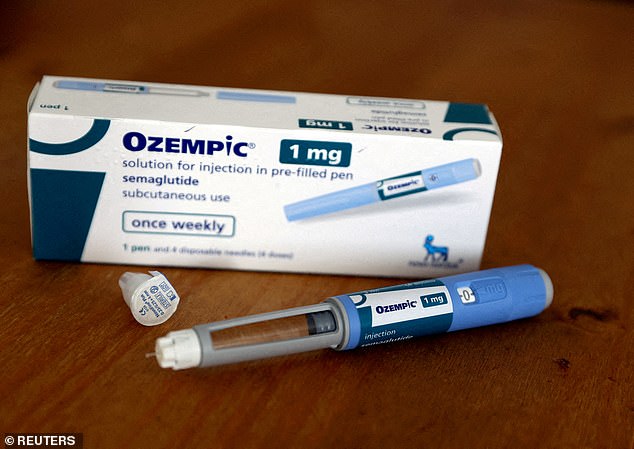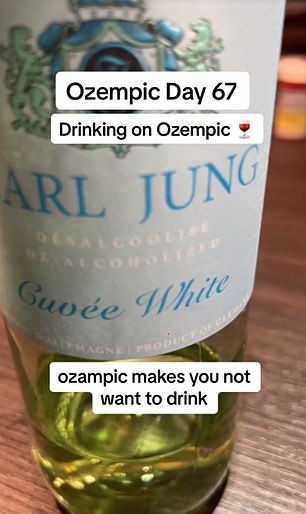Now doctors are warning of ‘Ozempic tongue’ – the latest bizarre symptom of weight loss drug
Ozempic users complain of strange changes in their sense of taste while taking the weight loss drug, especially when it comes to sweet treats.
And now scientists in Europe believe they have discovered what causes the so-called ‘Ozempic tongue’.
A study has found that some people taking semaglutide – the active drug in Ozempic – experience a change in a gene on the tongue involved in taste.
They also found that participants perceived the sweet taste ‘more intensely’ than those who had not used the drug.

The above shows two patients on Ozempic who said their cravings for sweet treats were reduced while taking the drug
It might explain why the Ozempic forums are filling up with comments complaining about not being able to consume their favorite treats, from chocolate to wine to donuts.
Dr. Mojca Jensterle Sever, an endocrinologist in Slovenia who led the study, said: ‘People with obesity often perceive tastes less ‘intensely’ and have an inherently increased desire for sweet and energy-rich foods.’
‘[But] the current study showed that semaglutide improved taste sensitivity in obese women.
‘It means that the detection threshold is for different concentrations of four basic tastes [including sweetness] are improved.’
Semaglutide may have caused this shift because it mimics the fullness hormone GLP-1, which studies show is also linked to taste perception.
For example, studies in mice show that those who lack the GLP-1 hormone suddenly have a greatly reduced desire for sweet foods.

Ozempic has taken the US by storm because of its promise to help people lose weight with little more than a weekly injection


Patients have also described a decreased desire for other foods while taking the drug, including fast food and alcoholic beverages such as wine
It is also possible that not eating sweet treats for a long period of time while taking Ozempic could make a person more sensitive to sweet treats when they resume consuming them.
The study was presented Saturday at the annual meeting of the Endocrine Society in Boston, Massachusetts.
It has yet to be peer-reviewed
In the paper, scientists recruited 30 obese women and administered Ozempic to half of them for four months.
During the test, their taste sensitivity was measured by placing strips of all four basic tastes – sweet, salty, sour or bitter – on the tongue.
Scientists placed strips of varying taste intensity on the tongue, asking participants to reveal when they detected a taste.
During the study, participants also had some tongue cells removed for genetic testing and underwent MRIs before and after tasting something sweet after a standard meal.
Dr. Sever added: ‘Doctors are likely to correlate the findings with reports from their patients of changes in cravings for certain foods, beyond broad changes in appetite and satiety that help them lose weight.’
Scientists decided to study semaglutide’s effect on taste after noticing that mice lacking GLP-1 were much less sensitive to sweet treats.
